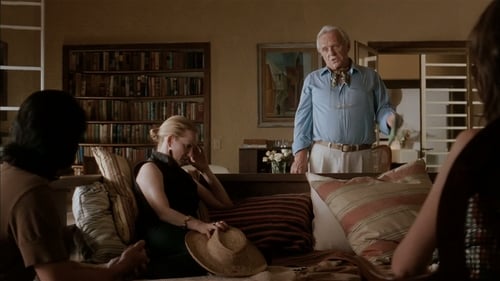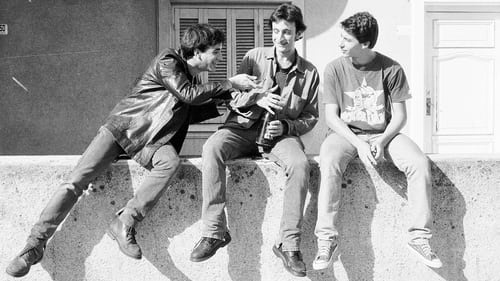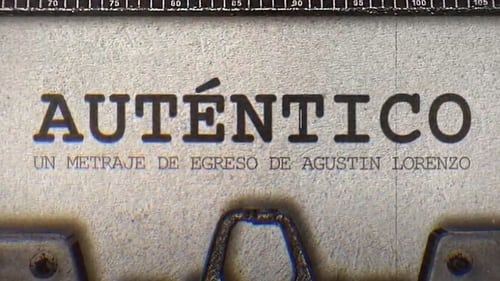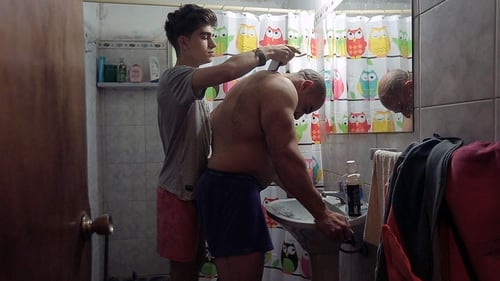Candomberos: de dos orillas (2018)
Gênero : Documentário, Música
Runtime : 1H 50M
Director : Ernesto Gut
Sinopse
Documentary about the birth and development of candombe in Uruguay. It is built through testimonies, audiovisual files and animations. It also covers the actuality of the candombe on the shores of the Río de la Plata.

Andres and Elias get together one evening for their last summer joint. On his way home, Elias finds a hidden case containing 5 different types of drugs. The next morning, Elias calls Andres to catch up on his discovery. He tells him he wants to gather round with some friends to perform an experiment: each should take a different drug and see what happens. The experiment takes a sudden turn when Andres girlfriend calls him to say her grandma has died.

A documentary on the life of Uruguayan politician and former guerrilla fighter José Mujica.

Omar Razaghi, 28 anos, aluno de doutorado da Kansas University, ganha uma bolsa para escrever uma biografia do escritor latino-americano Jules Gund. Omar precisa passar por três pessoas próximas a Gund - seu irmão, viúva e amante mais jovem - para conseguir autorização para escrever a biografia. Escrito por Maris Gabriella, editado por Krystal Frauendienst.

24 hours in the life of three street youths in Montevideo. Three teenage guys try to figure out what they're supposed to be doing with their lives in this drama from Uruguay that puts the emphasis on character over narrative.

Beto sustenta a família trabalhando como contrabandista. Atravessa todos os dias a fronteira do Uruguai com o Brasil para comprar objetos encomendados pelos comerciantes de sua pequena cidade, Melo; uma viagem de 60km feita de bicicleta com o constante perigo de ter a mercadoria apreendida na fronteira. Os moradores de Melo são informados que o Papa fará uma visita à pequena cidade e que mais de 20 mil brasileiros são esperados para o evento; os habitantes planejam ganhar dinheiro com a visita vendendo comidas e souvenires, mas Beto acredita ter uma ideia única, que o fará ganhar mais dinheiro entre todos e realizar seu sonho: comprar uma moto para fazer a viagem penosa de todos os dias.

Affected by the disappearance of her best friend, Clara has withdrawn from the outside world. At a party she meets Mateo, he seems to know her more than she thinks.

Three old man, a little boy training to protect an old patrimony, La "33", the last train.

In 1983 a group of 154 children aged 3 and 17 years old traveled alone from Europe to Montevideo. They were children of political exiles from Uruguay, who were unable to come back to their own country; they sent their kids to know their relatives and home country. That human sign, charged with a political message, took part in children’s identity development. Nowadays, six of them still remember that day, when a crowd received them singing all together “your parents will come back”.

Explora o papel das grandes corporações na ajuda aos massacres perpetrados pela Junta Militar Argentina contra os dissidentes, durante a chamada Guerra Suja na Argentina ou Guerra Suja (em espanhol: Guerra Sucia) (1976-1983) e também autonomeado como Processo de Reorganização Nacional, tudo isto fazendo parte da "A Operação Condor" (em inglês: Operation Condor; em castelhano: Operación Cóndor, também conhecida como Plan Cóndor) foi uma campanha promovida pelos Estados Unidos de repressão política e terror de Estado envolvendo operações de inteligência e assassinato de opositores. Foi oficial e formalmente implementada em novembro de 1975 pelas ditaduras de direita do Cone Sul.
O governo dos Estados Unidos forneceu planeamento, coordenação, formação em formas de tortura e apoio técnico, e forneceu também ajuda militar às Juntas durante as administrações de L. B. Johnson, Richard Nixon, Gerald Ford, James Carter e Ronald Reagan, tais apoios era frequentemente encaminhado através da CIA.


In 2004, after 174 years in which political power was always held by one or other of the parties on the right, a historic change at last became possible in Uruguay. This documentary was filmed in the days coming up to the election, and it shows how the common people saw their country. The main protagonist is the man in the street. With humour, with intense emotions, with a lot of dignity and a passion for politics, these Uruguayans show how proud they are to be playing a role in their country's history.

Two young people learn about love as politics turn their world upside down in this drama from director Ana Diez. After a long and successful career as a soccer player, Xavi retires from the game and moves to Spain, where one day to his surprise he happens upon Rosana, a friend from his childhood in Uruguay. As Xavi and Rosana catch up on what has happened to them over the past thirty years, they flash back to 1973, when young Xavi and his father Manuel, a shoemaker, lived down the street from Rosana.

Seleção Oficial Mostra Forum do festival de Berlim 2018

ONLY NOISE is a documentary that tries to rescue from oblivion a tale with Les Renards as protagonists, one of the many bands from the 60s that was a key witness and pioneer in the first big explosion of Uruguayan Rock. It might look like a tale from an ordinary band, but in 1968 this band managed to break a world record.

Documentary about the birth and development of candombe in Uruguay. It is built through testimonies, audiovisual files and animations. It also covers the actuality of the candombe on the shores of the Río de la Plata.

The Punta de Rieles prison was where most female political prisoners were incarcerated during the dictatorship in Uruguay. The way up to the building led through “the meadow” where there were animals grazing, and the prison itself was surrounded with flowers. The place seemed eminently liveable, almost comfortable, and at first sight there was no sign of the silent struggle going on behind those walls. This documentary is an attempt to reconstruct life at the prison through the testimony of some of the hundreds of women who were there and who resisted the military regime's attempts to grind them down and destroy them.

Ten years after winning a world title in bodybuilding in Russia and becoming a star of said discipline in Mexico, Antonio Osta (43) leads a life of austerity in the Uruguayan rural town where he grew up. He resides there with his son Juanjo (17), a sensitive teenager who keeps him company and confronts him openly. Suffering from acute kidney disease which keeps him from competing professionally, Antonio is stuck in limbo, halfway between his glorious past and the impossibility of being who he once was. However, he is unwilling to give up his lifestyle, even if it kills him. In an attempt to reinvent himself, and seeking a better future for his son, Antonio plans a comeback to the Mexico bodybuilding scene, where he may relive his glory days.

How the Uruguayan-Spanish actor, writer, producer and director Narciso 'Chicho' Ibáñez Serrador changed forever the way of producing programs for Spanish television.














